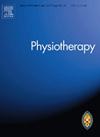欧洲物理治疗师的入门级教育:与专业自主关系的叙述
IF 3
3区 医学
Q1 REHABILITATION
引用次数: 0
摘要
目的调查入门级教育的长度是否对欧洲物理治疗师的专业自主性有影响,以及专业组织如何与教育机构合作来塑造入门级课程?设计和参与者:采用调查和半结构化访谈的混合方法研究,探索来自37个欧洲国家的37位政策专家的观点。结果在欧洲,获得“物理治疗师”头衔所需的教育时间因国家而异(3年、3.5年、4年或5年)。目前的欧洲框架允许具有文凭、学士学位或硕士学位的认可入门级物理治疗师。无论初级教育的时间长短,37个国家中有26个(70%)报告称,物理治疗师的职业自主权尚未合法化。这些国家中的大多数(58%)都有初级教育,使物理治疗师能够独立。大多数专业组织(23/37,62%)报告说,结构性合作塑造了入门级教育。然而,23个国家中有9个(40%)的专业组织报告说,它们对课程的影响很小。初级教育项目的长度,从3年到5年不等,与毕业生自主实践的准备直接相关。这些发现强调了在欧洲需要一个更加统一的方法来进行物理治疗教育。在执业物理治疗师和教育机构之间,迫切需要持续的反馈机制。这将确保课程不断整合新出现的证据和现实世界的实践要求,从而提高就业能力和专业效能。本文章由计算机程序翻译,如有差异,请以英文原文为准。
Entry-level education for physiotherapists in Europe: a narrative on the relationship with professional autonomy
Objectives
To investigate if the length of entry-level education has an impact on the professional autonomy of European physiotherapists, and how professional organisations collaborate with educational facilities to shape the entry-level curriculum?
Design and participants
Mixed methods study using a survey and semi-structured interviews to explore perspectives from 37 policy experts from 37 European countries.
Results
In Europe, the length of education required before attaining the title of ‘physiotherapist’ varies between countries (3, 3.5, 4 or 5 years). The current European framework allows for recognised entry-level physiotherapists with either a diploma, a Bachelor’s degree or a Master’s degree. Regardless of the length of entry-level education, 26 of 37 (70%) countries reported that professional autonomy is not legalised for physiotherapists. Most of these countries (58%) have an entry-level education that prepares the physiotherapist to be autonomous. Most professional organisations (23/37, 62%) reported structural collaboration to shape entry-level education. However, the professional organisations in nine of 23 (40%) countries reported that they have a minor level of influence on the curriculum.
Conclusion
The length of entry-level education programmes, ranging from 3 to 5 years, is directly associated with the graduates’ readiness to practice autonomously. These findings underscore the need for a more harmonised approach to physiotherapy education in Europe. There is a compelling need for ongoing feedback mechanisms between practising physiotherapists and educational institutions. This will ensure that the curriculum continuously integrates emerging evidence and real-world practice requirements, thereby enhancing employability and professional efficacy.
求助全文
通过发布文献求助,成功后即可免费获取论文全文。
去求助
来源期刊

Physiotherapy
医学-康复医学
CiteScore
6.40
自引率
3.00%
发文量
377
审稿时长
82 days
期刊介绍:
Physiotherapy aims to publish original research and facilitate continuing professional development for physiotherapists and other health professions worldwide. Dedicated to the advancement of physiotherapy through publication of research and scholarly work concerned with, but not limited to, its scientific basis and clinical application, education of practitioners, management of services and policy.
We are pleased to receive articles reporting original scientific research, systematic reviews or meta-analyses, theoretical or debate articles, brief reports and technical reports. All papers should demonstrate methodological rigour.
 求助内容:
求助内容: 应助结果提醒方式:
应助结果提醒方式:


